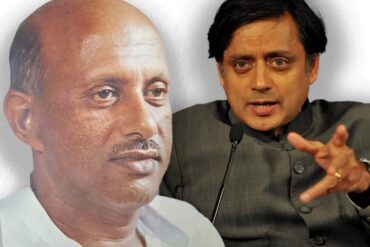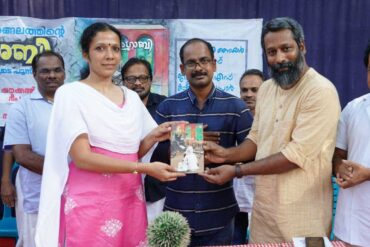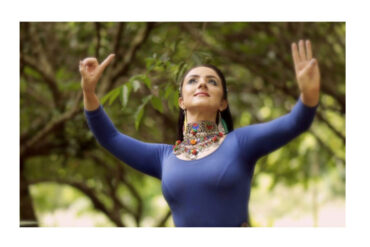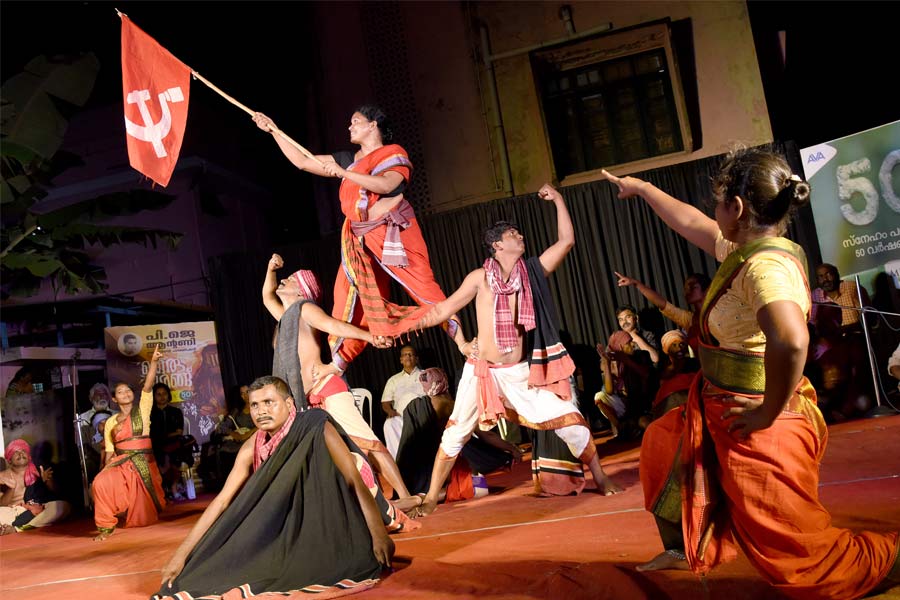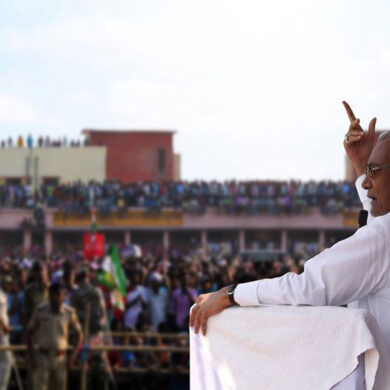The stage was set for four days of debate and dialogue when the fifth edition of Kochi’s street theatre fest Theruvarangu unfolded in four different corners of Ernakulam. As the sun dipped, the voices started echoing in the quiet by-lanes, away from the bustle of the city. These were voices of revolutionaries fighting oppression, the youth questioning religious diktats, themes of socio-political issues amongst others. Theruvarangu organised by PJ Antony Foundation was inaugurated by renowned drama artiste Prasanna at the Ernakulam Public Library.
Telugu play titled Veera Telangana by Hyderabad-based theatre group Praja Natya Mandali opened the fest. Using various theatre techniques, the Telangana movement was enacted reinforcing the social, ritual, moral and emotional realities of the common people. They used the folk art form called Burrakatha, a well-known and popular technique of storytelling in the Andhra region. It focussed on the heroism of a peasant who fought valiantly against the oppression of the feudal landlord.
The story stressed that the heroism of a simple peasant could mobilize other peasants and turn into a revolution. Through music and dialogue, the play was able to awaken the audience towards anti-social elements, exploitation by capitalists and social evils. The street play also reflected on the present-day socio-political situation in the country.
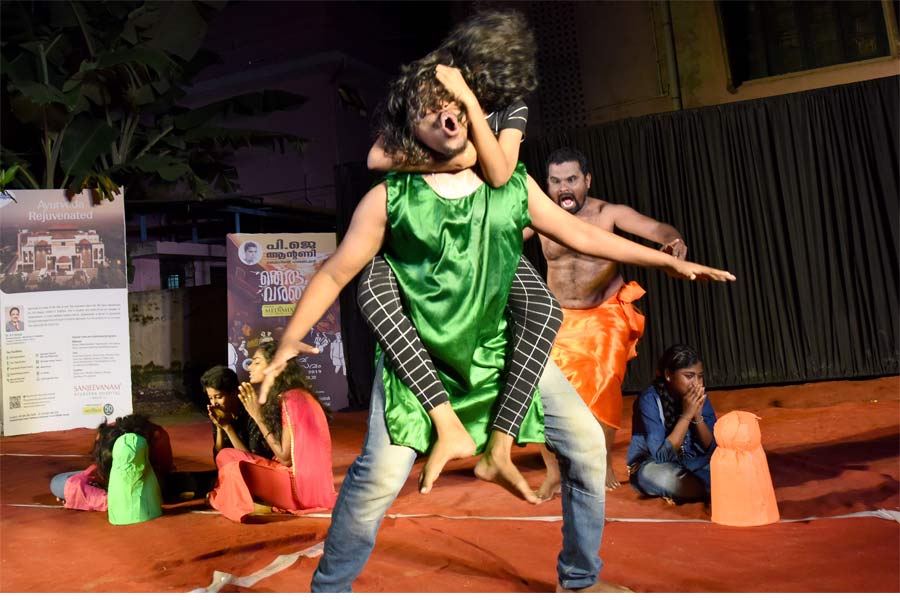
This highly powerful play was followed by a light-hearted children’s street performance titled Muthachante Pramanam. The 30-minute act took the audience to a lighter moment. In a comical way the actors showcased how religious fundamentalists speak an “alien” language to woo the general public. The play began with a group of girls trying to play football in their local playground and how they are stopped by the elders stating that girls don’t play football. Soon, the scene shifts to two different religious group taking over the playground to worship their respective gods in alien languages. Slowly, the followers start increasing and a fight breaks out between the group to prove their superiority. A group of children fights these religious fundamentalists to reclaim their playground.
Ramesh Nair, a resident of Elamakara, who was attending the festival with his children said, “I really loved and enjoyed today’s show, especially the play Muthachante Pramanam. In a very simplistic and comic way, the director and actors showcased how Hindus and Muslims are fighting over land and superiority. Though we laughed throughout the show, it did make me think about world are my children growing up in. These days they don’t even have a proper playground to play.”
These plays makes us question the society we live in, said another theatre enthusiast and college student, Sidharth. “Though Veera Telangana is a story about Telangana peasant movement, the story is relevant in today’s age and time too. We still hear so many stories of caste-based oppression. Not much has changed in our country. Such narratives are a strong reminder of the same.”
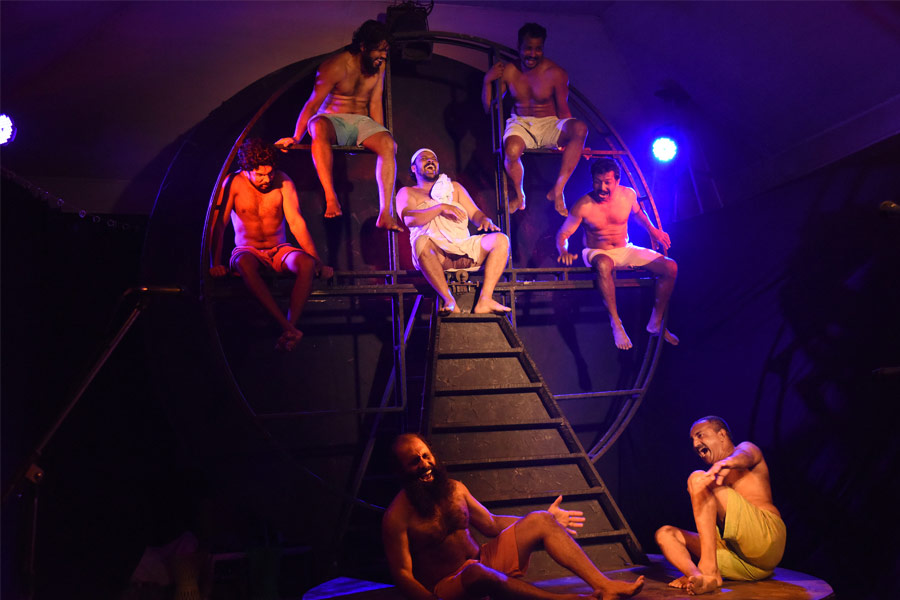
Street plays are generally a tool used to create public awareness and props are kept to the minimal or given a skip altogether. However, the fifth edition of the PJ Antony Foundation saw a different take when the Udaya Kodakkad group with their play titled Masala written and directed by Jino Joseph, performed on a circular podium specially designed for the performance added a new and innovative prop in this genre of theatre.
The four-day festival showcased 48 plays by 12 theatre groups in four venues: Loka Nataka Dinaghosha Samithi, Fort Kochi; V N Kesava Pillai Memorial Library, Valayanchirangara and Sree Narayana Granthasala, Poothotta apart from Ernakulam Public Library.
Other plays included An Action by Alternative Living Theatre, Kolkotta; Bavul by Jwala, Karuvakkode; Nettikkomban by Jananayana, Thrissur; Marthandande Swapnangal by Little Earth Theatre, Kottakkal; Masala by Udaya Kodakkad, Kasargod; Chaplin by C for Cart; Varuttha Meen by Pace and Kariravanam by Janarangavedi amongst others.
The event is getting bigger and better each year, shared Joby John, executive committee member, PJ Antony Foundation. “This year we saw a large number of young audience between the age group of 25-30 years. The idea is to showcase some of the best and ancient storytelling techniques to today’s generation.”
Talking about the venue, Joby said, “Generally in a small town, you see plays and cultural performance happening in religious spaces especially in temples. We wanted to hold this festival in a more secular space that is the reason we chose libraries as our venue. Libraries hold the perfect setting for a thought-provoking dialogue.”

